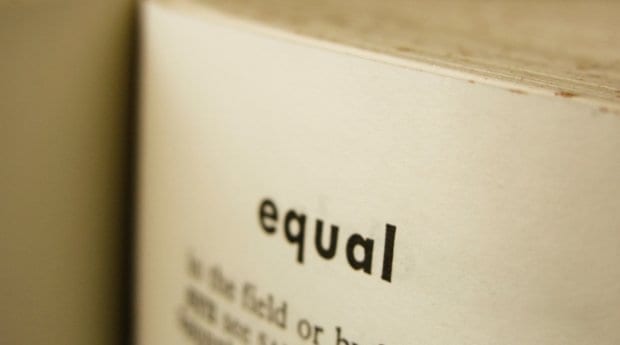Canada made progress on LGBT rights in 2014, although significant gaps remain in human rights legislation, education and gender-identification regulations in different provinces.
Although every province explicitly prohibits discrimination on the basis of sexual orientation, and sometimes on the basis of gender identity, these rights are unevenly expressed in legislative statutes, and exceptions remain where discrimination is still permitted in certain situations.
Saskatchewan’s Human Rights Code allowed landlords to discriminate on sexual orientation grounds until that provision was struck from the code in December 2014.
In the same bill, which passed unanimously, Saskatchewan also became the latest province to add explicit protection for gender identity to its human rights laws, following the lead of Ontario, Manitoba, Newfoundland and Labrador, PEI and Nova Scotia, which all did so in 2012/13, and Northwest Territories, which led the way in 2002.
The movement in Saskatchewan was a change of heart for the governing Saskatchewan Party, which had opposed the amendment in 2013.
Rachel Loewen Walker, executive director of the Avenue Community Centre in Saskatoon, says momentum picked up after other provinces added gender-identity protection to their codes. A “Time for Change” movement on social media called on Premier Brad Wall to enshrine trans rights, culminating in Wall’s surprise announcement that a bill would be passed Dec 8.
“It was wonderful news,” Loewen Walker says. “We’ve seen a huge increase in the last number of years of specifically trans people facing precarious housing or homelessness or discrimination from landlords. We know it’s a problem.”
In all other provinces and under the federal Canadian Human Rights Act, human rights tribunals tend to include trans people under provisions prohibiting discrimination on the basis of sex, although this is not always understood by the general public.
“It’s not only for people who need protection,” Loewen Walker says. “It’s also for all of those businesses, workplaces and educational institutions that are unclear what their responsibility is. It’s the educational component that’s also very important in the inclusion of gender identity.”
Since 2010, Alberta’s Human Rights Act requires parents to be notified in advance and have the right to withdraw their children from classroom discussions of religion, sex or sexual orientation. Critics say the law effectively creates a gag on LGBT subjects in Alberta schools.
In late 2014, the Alberta government tabled a bill to remove the parental notification requirement and to add “sexual orientation” to the province’s Bill of Rights (which is distinct from the Human Rights Act, in that it applies to the government). The bill also would have enshrined “the right of parents to make informed decisions respecting the education of their children” in the Bill of Rights and proposed a byzantine system of approvals for students to form gay-straight alliances (GSAs), which combined to cause so much controversy that the government withdrew the entire bill in December.
Only Ontario and Manitoba have laws requiring all schools to provide GSAs when requested by students. New Brunswick added regulations requiring GSAs in schools in 2014.
Alberta also made some progressive moves in 2014, amending its statutes to finally recognize same-sex marriages (although these have been legal in Canada since 2005) and allowing trans people to change the gender markers on government ID without having sex-reassignment surgery (SRS).
BC and Manitoba also removed the SRS requirement for document changes in 2014. Quebec removed the SRS requirement in 2013, but the new government elected in 2014 has not yet put the change into effect. Quebec also restricts legal gender changes to Canadian citizens aged 18 and older. Ontario changed its regulations in 2012, and Nova Scotia has announced plans to follow suit in 2015.
In New Brunswick and PEI, the problem is compounded by the fact that SRS is not covered by provincial health plans as it is in other provinces.
A private member’s bill that would add gender identity to the Canadian Human Rights Act, as well as the hate crime provisions of the Criminal Code, received approval from a majority of elected MPs in 2013 but has been stalled in the Senate. Pundits predict Conservative Senators will allow the bill to die before the next election.
BC MLA Spencer Chandra Herbert introduced a bill in November 2014 to add protection from discrimination on the basis of gender identity and expression to the province’s Human Rights Code. It’s his third attempt, and although no government MLAs publicly support the bill, he says he has received private support from Liberals.
“This bill, if passed, will help ensure every trans person in BC knows the law is on their side and push businesses, governments and our school system to stand up for trans people’s rights and equality,” he told Xtra at the time. “It will also help ensure our judges have no doubts that the law must protect and support trans people’s equality and freedom to be who they are without fear.”


 Why you can trust Xtra
Why you can trust Xtra


